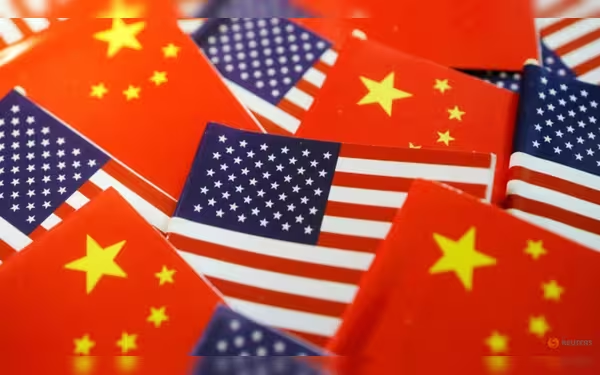Saturday, November 16, 2024 03:22 PM
US Proposes Ban on Chinese Technology in Connected Vehicles
- US to ban Chinese software in connected vehicles.
- Concerns over national security drive regulatory changes.
- Public comment period to precede finalization of rules.
 Image Credits: channelnewsasia
Image Credits: channelnewsasiaUS plans to ban Chinese software in connected vehicles due to national security concerns, with a public comment period before final rules.
In a significant move reflecting growing national security concerns, the US Commerce Department is poised to propose a ban on Chinese software and hardware in connected and autonomous vehicles. This decision, expected to be announced on Monday, September 23, comes amid rising apprehensions regarding the data collection practices of Chinese companies and the potential risks associated with foreign manipulation of vehicles that are increasingly reliant on internet connectivity.
The Biden administration has been vocal about its worries surrounding the implications of Chinese technology in American vehicles. Officials have pointed out that the integration of Chinese software and hardware could lead to serious vulnerabilities, especially if millions of cars on the road were compromised. Commerce Secretary Gina Raimondo highlighted the gravity of the situation, stating, "You can imagine the most catastrophic outcome theoretically if you had a couple million cars on the road and the software were disabled." This statement underscores the potential dangers that could arise from allowing foreign technology to operate within critical infrastructure.
As part of the proposed regulation, the US aims to prohibit the import and sale of vehicles from China that contain essential communications or automated driving system software or hardware. This move marks a notable escalation in the ongoing restrictions imposed by the United States on Chinese vehicles and technology. Just last week, the Biden administration implemented steep tariff hikes on various Chinese imports, including a staggering 100 percent duty on electric vehicles.
President Joe Biden has previously expressed his determination to safeguard American interests, stating, "China's policies could flood our market with its vehicles, posing risks to our national security. I’m not going to let that happen on my watch." This proactive stance reflects a broader strategy to ensure that US roads remain secure from potential threats posed by foreign technology.
The Commerce Department plans to allow a 30-day public comment period before finalizing the rules. The proposed prohibitions would not only affect vehicles with certain Bluetooth, satellite, and wireless features but also extend to highly autonomous vehicles capable of operating without a driver. Interestingly, the regulations would also apply to other foreign adversaries, including Russia, indicating a comprehensive approach to national security.
However, the implementation of these regulations may not be straightforward. A trade group representing major automakers, including General Motors and Toyota, has cautioned that altering hardware and software systems is a complex process that requires extensive engineering and testing. This highlights the challenges that manufacturers may face in adapting to the new rules.
As the landscape of connected vehicles continues to evolve, it is crucial for consumers and industry stakeholders to stay informed about these developments. The proposed ban on Chinese technology in vehicles is not just a regulatory measure; it is a reflection of the broader geopolitical tensions and the need for robust security measures in an increasingly interconnected world. As we move forward, the implications of these regulations will likely shape the future of the automotive industry and the safety of American roads.













